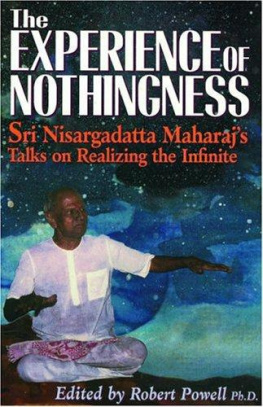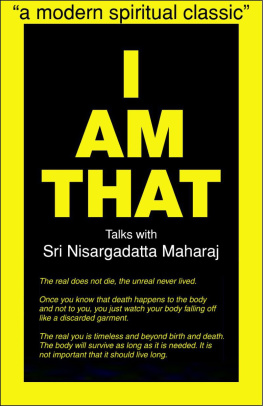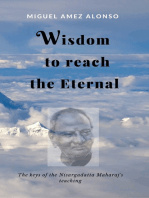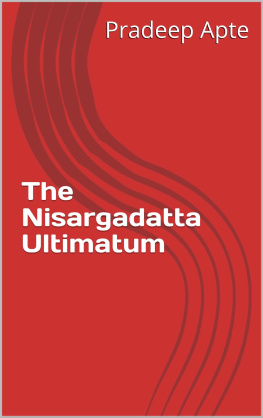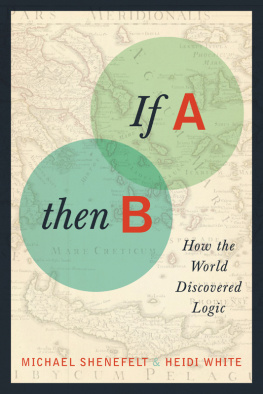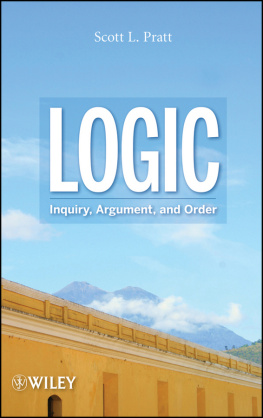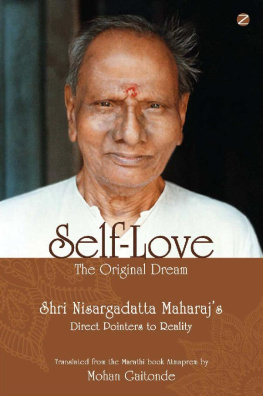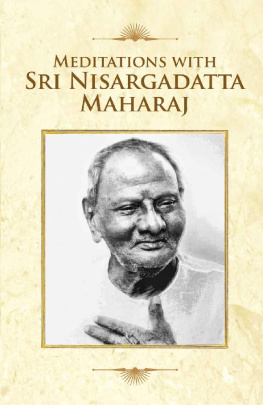Sri Nisargadatta Maharaj
Experience the Infinite
Sri Nisargadatta Maharaj's Talks on Realizing tbe Infinite
Edited by Robert Powell, Ph.D.
BLUE DovE PRESS
SAN DIEGO CALIFORNIA -1996
SRI NISARGADATTA MAHARAJ was born in Bombay in 1897. His parents, who gave him the name Maruti. had a small farm at the village of Kandalgaon and it was here that he spent his early years. In 1924 he married, later becoming a cigarette trader in Bombay where he and his wife raised a family. From early childhood he had taken a keen interest in spiritual matters. his talks with holy men sharpening his inquisitive mind and kindling a spiritual fire. At the age of 34 he met his Guru and three years later realized himself, taking the name of Nisargadatta. He continued to live the life of an ordinary Indian working-man but his teachings, which are set out in his master-work I Am That and are rooted in the ancient Upanishadic tradition, made a significant philosophical break from contemporary thought. Devotees traveled from all over the world to hear Nisargadattas unique message until his death in 1981.
Robert Powell was born in 1918, After obtaining his doctorate in chemistry from London University, he pursued a career first as an industrial chemist and later as a science writer and editor in Britain and the United States. In 1968 and 1969, he published nine chemical engineering monographs in use by academic and industrial libraries throughout the world.
Robert Powell's personal exploration of spirituality began in the 1960's and his quest for self-discovery led him to study Zen and a number of spiritual masters including J. Krishnamurti and Ramana Maharshi. His own spiritual awakening coincided with his discovery of the teachings of Sri Nisargadatta Maharaj. He is also the author of a number of books on what he describes as "human consciousness transformation." Powell lives a busy life with his wife Gina in La Jolla, California.
***
Whatever is, is an expression of consciousness only. If consciousness is not there, the expression of consciousness is not there either. Therefore, nothing is. And this consciousness is an uncalled-for concept; it has appeared spontaneously.
SR1 NISARGADATTA MAHARAJ
ACKNOWLEDGEMENT
I am grateful to Frank Anderson, of Huntington Beach, California, who provided me with the original tapes of discourses for this book.
PREFACE
Sri Nisargadatta Maharaj hardly needs an introduction any longer to lovers of the highest wisdom. Known as a maverick Hindu sage. Nisargadatta is now generally acknowledged to rank with the greatest masters of advaita teachings, such as Sri Ramana Maharshi of Tiruvannamalai. Sri Atmananda of Trivandrum. and the more recently known disciple of the Maharshi, Poonjaji of Lucknow.
In this latest work, the depth and subtlety of the treatment of the subject combined with the closely reasoned approach (as marvelously exemplified in the chapter The Experience of Nothingness ) make these dialogues virtually unsurpassed in the spiritual literature. On a more mundane level, Maharaj addresses two points many have always found intriguing. People have wondered, and some even complained, about his apparently brusque manner with certain visitors by not allowing them to stay with him for any extended length of time. In this volume Maharaj for the first time reveals the rationale for his actions. It occurred to me this might well have a bearing also on the way one reads these discourses. Optimally, small portions of the text should be digested at any one time, in order to let their significance sink in. Thus, one uses Maharaj more like a catalyst in the flowering of one's own understanding and the consequent development of one's convictions. In this way, the words acquire an extraordinary vitality and there is a corresponding responsiveness in the listener or reader.
The other point is that it is apparent in the discussions that Maharaj rarely agrees with anyone. even if that person has made an apparently valid statement or given a correct answer to his questions. Maharaj acknowledges this and explains how and why he uses this particular approach as a subtle pedagogic device. The possibility always exists to come up with a more or less correct answer, on the intellectual level, yet be benefit of actual experience or deep conviction. In such cases, to go along with the speaker would only encourage him to believe he has achieved genuine transformation when in fact he is merely repeating mechanically a verbal formula. It is as Maharaj once said: "The realized man knows what others merely hear but do not experience. Intellectually, they may seem convinced, but in action they betray their bondage." And on another occasion he said: Self-surrender is the surrender of all self-concern. It cannot be done, it happens when you realize your true nature. Verbal self-surrender, even accompanied by feeling, is of little value and breaks down under stress.
ROBERT POWELL
EDITOR'S NOTES
The basic truth of what the great advaita masters teach is essentially the same, which is to be expected since there is only one Reality. However, different teachers lay different emphasis on various aspects of this teaching and to this purpose employ slightly different nomenclatures or use these terms in flexible ways as it suits their purposes.
Thus, I-am-ness and beingness in these conversations are generally used by Maharaj as denoting limited states of understanding which are fundamentally based on a sense of separate identity, resulting from taking oneself to be the body. They are wholly conceptual. Often, Maharaj uses both terms interchangeably. At other times, depending upon the emphasis he wishes to convey, he denotes beingness as a somewhat superior state, which arises upon transcendence of the I-am-ness and equates the manifest consciousness. Maharaj also refers to beingness as consciousness or knowingness and according to him it still is the product of the five elements (rooted in materiality), Thus, he states: 'This knowledge 'I am' or the 'beingness' is a cloak of illusion over the Absolute. Therefore, when Brahman is transcended only the Parabrahman is, in which there is not even a trace of the knowledge 'I am'. The state of beingness is clearly an incomplete. provisional state of understanding, as is also evinced from Maharaj's following words: sages and prophets recognized the sense of 'being' initially. Then they meditated and abided in it and finally transcended it, resulting in their ultimate realization.
Whereas "I-am-ness," "beingness" or "knowingness" has a somatic basis, which in turn arises from the physical elements. the Absolute lies beyond all "physicality" and can no longer be described. In the Absolute one has no instrument to make any statements. What I am in the absolute sense. it is not possible to convey in any words. In that ultimate awareness, nobody has any consciousness of being present. The presence itself is not there in the Absolute.
Maharaj teaches that upon transcendence of the individual consciousness into the universal manifest consciousness, the latter rests upon and lies within the Unmanifest or Parabrahman, where the latter denotes "that principle which was unaffected by the dissolution of the universes" and is a non-state. He also declares: "Please apprehend this clearly that You, the Absolute - bereft of any body identity - are complete, perfect and the Unborn. ln his teaching, you - as the Absolute - never have or had any birth. All forms are a result of the five-elemental play.
1 The term state implies a "condition," a modification of a more basic reality, which concerns an unalterable and ineffable substrate. Therefore. it would be more accurate to express this modification as a superimposition on the non-state" of the Parabrahman, somewhat analogous to the seeing of a snake in the rope.

